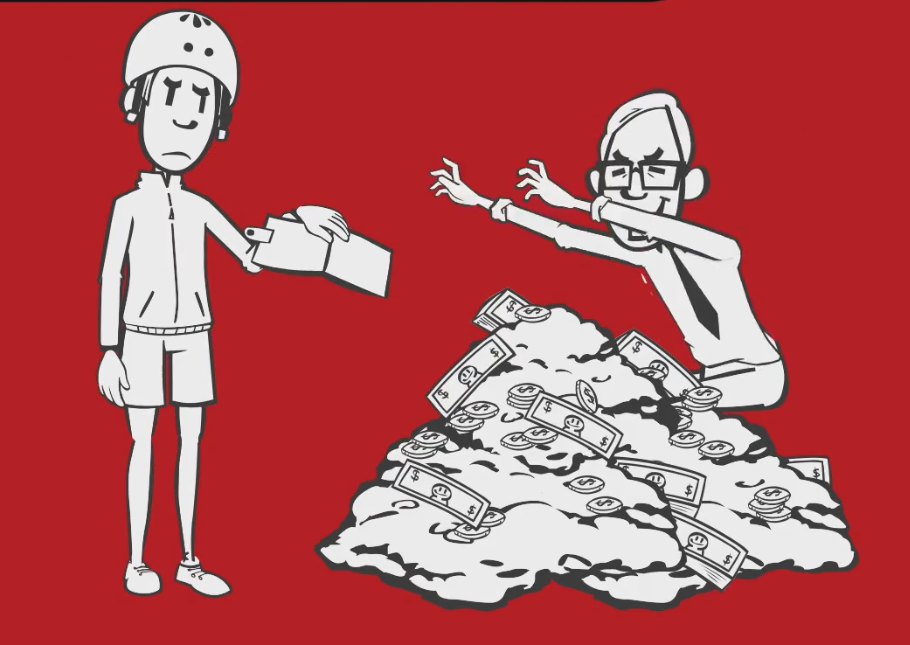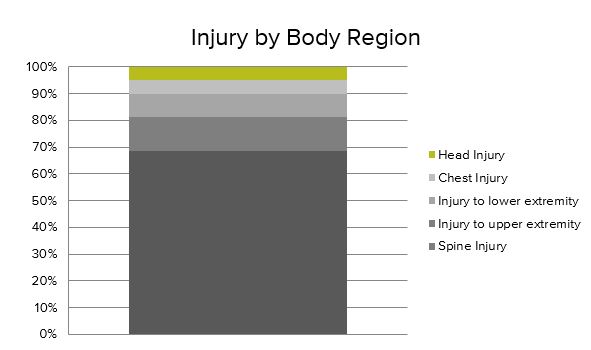The Facts (Nominal Defendant v Rooskov)
On 18 May 2005, Nigel rode his mountain bike to the local bowls club. Whilst at the bowls club he drank approximately 6 to 8 schooners of beer. Between 3.30pm and 4.30pm that afternoon he left the bowls club on his bike to ride home. He was not wearing a helmet.
It was a fine sunny day and Nigel was riding along the left-hand side of the roadway. He was riding downhill on a straight section of the road. As he was riding along, he heard a whistling noise from behind him, a screech of brakes and was then struck from behind. A vehicle hit the rear, right-hand side or back of the bike (Nigel was not sure which). This caused him to careen off the road. Nigel was thrown from his bike and landed in a ditch. He was knocked unconscious and sustained severe injuries to his back in the accident.
Nigel was found by people passing by who called the ambulance and police. He was transported to Wollongong Hospital for treatment and was subsequently diagnosed with a severe concussion and post-traumatic amnesia.
Want to know how to stop lawyers overcharging?

Watch our step-by-step video guide and discover:
Not watching the video may be the most expensive mistake of your life.
The Decision
One of the main issues at the trial was whether Nigel had been struck by an unidentified motor vehicle. It was argued by the Nominal Defendant that he lost control of his bicycle and ran off the road.
Nigel initially reported that he was struck by a vehicle. This was noted in the ambulance records, police records and initial hospital records. However, at the hospital his memory of the accident became vague and he expressed doubt about what had happened. He reported that to nursing staff, doctors and the police.
A police officer attended the scene of the accident that evening. He examined the scene and took a number of photographs. He also took photographs of the bike and noted there was no damage sustained to the bike. He did find skid marks located at the accident scene but dismissed them as being unrelated to the accident. The officer gave evidence at the trial that he was of the view that Nigel had not been hit by a motor vehicle.
Nigel’s father, a retired police officer, attended the accident scene two days after the accident and undertook his own investigations. That included taking a detailed sketch plan of the accident site with details of all relevant measurements of the area and the skid marks located at the accident scene. He also reported that the skid marks were very dark at that time and faded over the course of the next week.
Nigel gave evidence at the trial in which he maintained he had been hit by a vehicle. This was despite the fact that he later lost his memory whilst in the hospital and became unclear on what had happened.
Despite the evidence of the police officer at the trial, the judge held the following view:
“The difficulty I have with the skid marks is that they were consistent in location and presence and time with the sworn evidence of the plaintiff and consistent with versions he had given at various times….”.
Nigel’s evidence, the records given to the various medical personnel and the skid marks, persuaded the judge that Nigel had been hit by an unidentified vehicle. The judge awarded damages to Nigel for his injuries in the sum of $586,781.24 but deducted 5% of his damages because he was not wearing a helmet.
The Nominal Defendant appealed the judge’s decision. They argued that Nigel was not hit by an unidentified vehicle. The court of appeal did not agree with the Nominal Defendant and held that the original assessment made by the trial judge was correct.
Nigel was successful despite the fact he sustained a head injury, had a poor recollection of events after the accident and the investigations undertaken by police were not favourable to his case.
Cycle Law Opinion
The trial judge did not accept the evidence of the police officer at the trial. The fact that Nigel’s father also investigated the accident scene shortly after the accident assisted Nigel to win his case.
Nigel’s loss of memory in relation to the accident whilst he was in the hospital was not enough to persuade the judge that Nigel was incorrect when he initially stated he was hit by a vehicle. There was sufficient evidence contained in the various records to show that he did initially report he was hit by a vehicle. Further, the location of the skid marks at the accident scene were consistent with Nigel’s version of events.
Head injuries in accidents are more common than you might think and memory loss can be a side effect of a head injury. However, this does not mean you will lose your case even if there are no witnesses to the accident.
The graph below is the percentage of the types of injuries sustained in accidents from 1 July 2007 to 31 December 2016, including head injuries.
When head injuries are compared with other types of injuries they actually represent the fifth most common type of injury sustained in accidents.

The Consequences
The trial and subsequent appeal of Nigel’s case resulted in a good outcome for Nigel. This case could very well have been unsuccessful if the police officer’s version of events had been believed by the judge.
The important thing to take from this decision is the importance of obtaining your own evidence relating to the circumstances of the accident. Do not rely wholly on the investigations undertaken by the police.
The outcome of this case is proof that despite the fact you may have sustained a head injury and do not have a good recollection of the accident you can still succeed in a claim. However, to ensure success, you need to take appropriate steps to gather all relevant evidence to support your case as early as possible. The best way to do that is to obtain legal representation as soon as possible after the accident so that your legal representatives can undertake any necessary investigations on your behalf.

